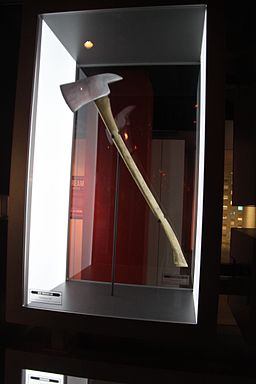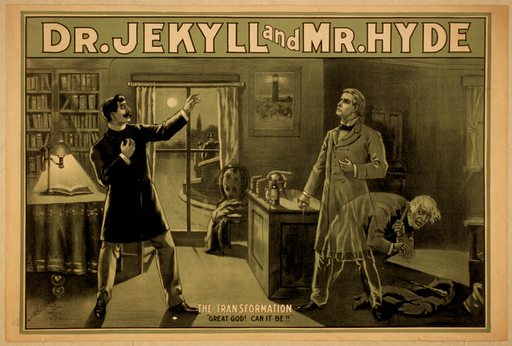By Rachel Louise Atkin
@rachelatkin_
It’s October! Cue the soundtrack to The Nightmare Before Christmas! Or maybe dressing up in uncomfortable outfits and singing along to animated musicals isn’t your thing, so instead let me recommend you seven books which I think capture the essence of Halloween perfectly. Whether through their use of gothic tropes, ghostly inclinations or murderous tendencies, all of these books are frightening in their own unique way.
- The Shining, by Stephen King
You might think I could put any old Stephen King book on here, but I’m a firm believer in reading his novels strategically. His prose has developed significantly through the years as he experiments with voice and genre, and many of his classic horror works sit at the beginning of his career. This is why I recommend you begin with The Shining. Turned into a film by Stanley Kubrick in 1980, this novel follows Jack Torrance and his family as they move in to the Overlook Hotel for a season. If it’s not uncanny enough living inside an empty hotel in the middle of winter, there’s also a bunch of creepy ghosts, telekinetic powers and fire extinguishers that turn into snakes. It’s a staple for fans of the horror genre, but I believe it also plays on a fear of confinement that was prominent in Britain during the 18th century. Asylums, like hotels, were places where people were temporarily contained inside individual rooms, and had the same sense of belonging-but-not-belonging.

Hollywood Cinema’s most famous axe?
Prop from Stanley Kubrick’s The Shining.
- War of the Worlds, by H.G. Wells
Although usually listed under ‘science fiction’ rather than ‘horror’, this classic is just as terrifying as a ghost story. Set in Victorian England, the novel is told from the point of view of a man who hears that a mysterious ‘shell’ has landed near where he lives. After a few days, the shell starts to open. And it’s aliens. The entire country is thrown into a panic and our main character races to London in an attempt to reunite with his fiancée. I can hold my hands up and say this is the scariest book I’ve ever read in my life. Wells’ descriptions of the way the Martian’s heat-ray sweeps across the ground and their movement through the country on spindly, mechanical legs makes me cringe with fright. Again, this novel has been adapted into film various times – most recently by Steven Spielberg in 2005. The book has such a different atmosphere that all they appear to share is a title, but I guess that’s up to you to decide.

- The Silence of the Lambs, by Thomas Harris
This novel is actually the sequel to Harris’ ‘Red Dragon’, but it seems to be better known than its predecessor. It appears in a tetralogy of books surrounding the serial-killer-slash-cannibal Hannibal Lecter, famously played by Anthony Hopkins in the 1991 film adaption. It is a horror novel which feels like it could belong comfortably with crime-thrillers, but it is the horrific descriptions of torture, murder and gore which makes it an extremely uncomfortable read for anybody even slightly squeamish. The head of the FBI Jack Crawford is psychologically manipulated by Lecter, meaning that this book frightens you in a more personal, realistic way than a science-fiction or a ghost story could. Maybe it’s because when you’re reading about something so intimate, it’s hard to distance yourself from the idea that this isn’t fantasy – it’s more about the horrors of real life.
- Dracula, by Bram Stoker
Another staple of the horror genre, Bram Stoker’s vampire novel is thought to be the work that has sparked our obsession with vampires across the globe. From TV to literature, theatre to comic books, vampires are everywhere, but Dracula is always the name that keeps coming back to us time and again. The novel is told in an epistolary format to get you uneasy from the get-go, and follows Jonathan Harker as he goes to stay with Count Dracula for a real estate transaction. He starts to notice weird things about his host though, and Harker soon realises that he’s become the imprisoned by the Count. Although most people think they already know the story of Dracula, when reading this for the first time I was surprised by how little had been filtered into modern culture from the original text. In fact, all that we really have remaining now is the idea of Count Dracula has a guy with a cape who lives in a castle and sucks blood. I’d encourage you to read the novel, just because it’s a fascinating insight in to what a whole modern subculture has based its entire aesthetic on (looking at you Whitby).
- House of Leaves by Mark Z. Danielewski
This is one I haven’t read, but that’s not because I’m lazy. It’s because even the physical idea of this book kind of freaks me out. House of Leaves is something difficult to describe if I don’t have the novel with me, but is famous for being written so erratically and fragmented that sometimes you won’t actually be able to read the words on the page. They might be printed backwards, or they might be overlapping with other letters so all you see is a smudge. Other times there can be only one or two words on a page, whilst on the next there will be text so small you will have to squint to read. As far as I can gauge it is a novel about a haunted house, but readers keep the details of the plot well buried so that you can go into it knowing close to nothing about what’s going on. If this hasn’t intrigued you enough to want to know what the hell this literary creation is, go and find it in a bookshop and flick through it yourself.
- The Strange Case of Dr Jekyll and Mr Hyde, by Robert Louis Stevenson
Most people already know the plot twist at the end of this novella. If you don’t, I won’t spoil it, but the key with this one is to go into it like you haven’t heard anything about it before. The use of science and technology reflected the ideas of rationalism becoming prominent during the Victorian Era, which could’ve made it uneasy for many readers in the way it was being used. In essence, Dr Jekyll has defied God (in a similar way to Dr Frankenstein) and this goes against many of the principles adopted by society. It’s less scary for modern audiences, but the plot-twist at the end still channels some important uncanny elements such as the idea of ‘the double’.

- Locke & Key, by Joe Hill & Gabriel Rodríguez
Locke & Key is one of the best graphic novels I’ve read to date. It follows the Locke family as they move into a new house after the murder of their father. Once inside, they start to find various keys lying around which give them specific supernatural powers depending on which key they use. Intertwined with this are flashbacks to their father’s youth where a ghostly mystery is brewing, and if that doesn’t sound cool enough then you should probably know that Joe Hill is Stephen King’s son. The series has a few nods here and there to some of his father’s classic horror works, but also has its own modern flair and really showcases Hill as a talented writer.
I hope you’ll decide to check some of these out before the month is over. If none of them take your fancy, there’s still a wealth of gothic and horror literature out there for you to get lost in. If you think you can handle the monsters, that is…



